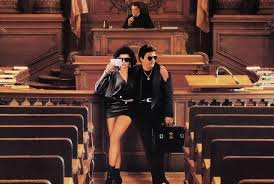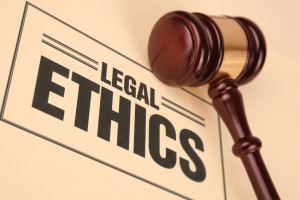Happy Eclipse Day!
Friday’s questions are here. The answers follow today’s Honor Roll.
Honor Roll
- Beth DeBernardi, Administrative Law Judge, Vermont Dept. of Labor
- Andy Delaney, Martin Delaney & Ricci
- Robert Grundstein
- Ryan Kane, Vermont Deputy Solicitor General, Office of the Attorney General
- Keith Kasper, McCormick Fitzpatrick Kasper & Burchard
- Douglas Keehn, Assistant Attorney General, Medicaid Fraud & Residential Abuse Unit
- Patrick Kennedy, The First Brother
- Jordana Levine, Marsicovetere & Levine
- Jeffrey Messina, Flynn Messina
- Patrick Olmstead, Patrick Olmstead Law
- Keith Roberts, Darby Kolter & Roberts
- Stephanie Romeo, Ryan Smith & Carbine
- Jonathan Teller-Elsberg, Staff Attorney, New Hampshire Legal Assistance
- Jason Warfield, Jason Warfield Family Law & Mediation
ANSWERS
Question 1
Here’s a few sentences from one of the comments to a rule. What of the 7 Cs of Legal Ethics does the rule address?
- “To determine whether a _______ exists, a lawyer should adopt reasonable procedures, appropriate for the size and type of firm and practice, to determine in both litigation and nonlitigation matters the persons and issues involved. Ignorance caused by a failure to institute such procedures will not excuse a lawyer’s violation of this rule.”
CONFLICT OF INTEREST. V.R.Pr.C. 1.7, Cmt. [3]
Question 2
Some might consider it a distinction without a difference, but which is correct? Vermont’s rule on fees:
- A. prohibits a lawyer from charging an unreasonable fee. See, V.R.Pr.C. 1.5.
- B. requires a lawyer to charge a reasonable fee.
Question 3
Another C. A comment to the rule that addresses this “C” acknowledge that compliance with the duty “can result in grave consequences to the client, including not only a sense of betrayal but also loss of the case and perhaps a prosecution for perjury.” Still, compliance is required.
Which C?
CANDOR. V.R.Pr.C. 3.3, Cmt. [11]
Question 4
Imagine this situation: Person meets with Lawyer to discuss forming a client-lawyer relationship. Person took the meeting in good faith. That is, Person did not take the meeting for no other purpose than to disqualify Lawyer from representing anyone else in the matter. Nevertheless, following the consultation, Person decides not to retain Lawyer. Now, someone else wants to retain Lawyer in the same matter.
Which is most accurate?
- A. Vermont has a rule that addresses this exact situation. The rule sets out the duties a lawyer owes to a prospective client.
- B. Vermont does not have a rule that addresses this exact situation. Rather, Person will be deemed a “Current Client” and the situation analyzed under the rule that addresses “concurrent conflicts of interest.”
- C. Vermont does not have a rule that addresses this exact situation. Rather, Person will be deemed a “Former Client” and the situation analyzed under the rule that addresses the duties owed to former clients.
- D. Mike, I object to the premise of your question. There is no world in which a client could possibly decide against retaining me after having met me.
I blogged about the rule 3 times last week. The posts are:
- Fish, fowl, and Vermont’s rule on a lawyer’s duties to prospective clients
- The nature & type of information received from a prospective client that might later disqualify a lawyer
- Get Smart: ABA provides guidance on reasonable measures to avoid acquiring disqualifying information from a prospective client
Question 5
It has been far too long since Question 5 involved My Cousin Vinny. So, with the intro having involved gambling, here we go!
My Cousin Vinny includes a famous scene in which Vinny explains offers, counteroffers, and negotiations. The explanation is part of his attempt to collect bet that Mona Lisa Vito had won, but that the loser had not paid.
What had Mona Lisa Vito (successfully) bet on herself to win?
And because I set the rules here and am allowed blogger’s license, no credit for anyone who suggests that it was more of a hustle than a bet.
A game of pool. The “collection” scene is here.











